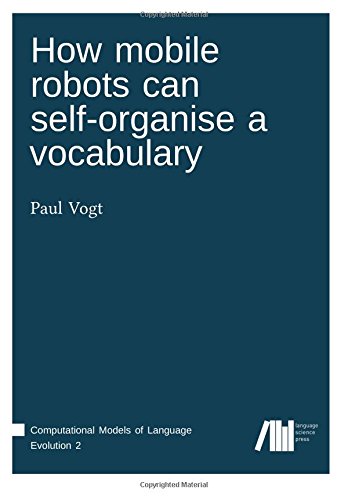
How Mobile Robots Can Self-organise a Vocabulary
by Paul Vogt
Publisher: Language Science Press 2015
ISBN/ASIN: 3946234011
ISBN-13: 9783946234012
Number of pages: 286
Description:
This book presents a series of experiments in which two robots try to solve the symbol grounding problem. The experiments are based on the language game paradigm, and involve real mobile robots that are able to develop a grounded lexicon about the objects that they can detect in their world.
Download or read it online for free here:
Download link
(2.6MB, PDF)
Similar books
 Language, Proof and Logic
Language, Proof and Logicby Jon Barwise, John Etchemendy - Center for the Study of Language
The book covers the boolean connectives, formal proof techniques, quantifiers, basic set theory, induction, proofs of soundness and completeness for propositional and predicate logic, and an accessible sketch of Godel's first incompleteness theorem.
(20425 views)
 A Maximum Entropy Approach to Natural Language Processing
A Maximum Entropy Approach to Natural Language Processingby A. L. Berger, S. A. Della Pietra, V. J. Della Pietra - Association for Computational Linguistics
The authors describe a method for statistical modeling based on maximum entropy. They present a maximum-likelihood approach for automatically constructing maximum entropy models and describe how to implement this approach efficiently.
(10187 views)
 Formal Language Theory for Natural Language Processing
Formal Language Theory for Natural Language Processingby Shuly Wintner - ESSLLI
This text is a mild introduction to Formal Language Theory for students with little or no background in formal systems. The motivation is Natural Language Processing, and the presentation is geared towards NLP applications, with extensive examples.
(10760 views)
 Prolog and Natural-Language Analysis
Prolog and Natural-Language Analysisby F. C. N. Pereira, S. M. Shieber - Center for the Study of Language
A concise introduction to logic programming and the logic-programming language Prolog both as vehicles for understanding elementary computational linguistics and as tools for implementing the basic components of natural-language-processing systems.
(20880 views)